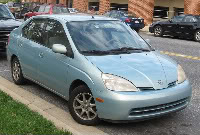[The Vector] Geothermal and Its Potential – But What About Earthquakes?
Many experts state clearly that geothermal energy could provide all the energy the world needs. 99% of the planet has a temperature above 1,000 degrees C. The earth’s heat is an inexhaustible source of energy, available 24 hours per day (night or day, in windy or calm conditions), it is practically emission-free, and it is within reach. And, geothermal power plants generate more energy over time than an equivalent solar or wind plant. Baseline power is also better; the Energy Information Administration (EIA) says that 3,150 MW of geothermal capacity generated 15.2 Gwh of electricity in 2009, while 35 GW of wind capacity generated 70.7 Gwh of electricity.
Geothermal applications are quietly growing around the world. In 2005, there was 8,933 MW of installed capacity generating 55,709 GWh per year of energy, says the International Geothermal Association (IGA). By 2010, 10,715 MW capacity is online generating 67,246 GWh. IGA projects that by 2015, about 18,500 MW will be installed, based on projects that have begun or are under consideration.
The top countries with worldside capacity between 2005 and 2010 were the U.S., Indonesia, Iceland, New Zealand and Turkey. The IGA reports that dramatic planning and growth is occuring in Europe and Africa. For instance, while only 10 countries in Europe had geothermal projects under development in 2007, that number jumped to 24 by 2010.
Why the Slow Growth and Slow Recognition?
However, geothermal isn’t growing as quickly as it could, according to most experts. Why? The capital costs and time to get a project complete is much longer than other green energy technologies, such as wind or solar projects. A geothermal plant can take 3 to 7 years to develop. As many clean energies compete for attention and dollars in the U.S., geothermal hasn’t gotten the attention of other clean technologies. Is this because we typically look for the quick fix and don’t focus on the long-term gains? Perhaps.
The potential and long-term benefits seems clear. Some analysts believe the oil & gas industry will start to invest more into geothermal with the clear cross-over in technologies and drilling, which may help the geothermal industry on some level.
What About the Earthquakes?
But there is another potential issue, which may slow down deeper drilling and geothermal development. Just a few years ago, the now-infamous geothermal project in Basel, Switzerland, which drilled three miles into Earth’s crust, set off a magnitude 3.4 earthquake, rocked the town and shut the operation down entirely. The drilling had caused the quakes. Although no serious injuries were reported, Geothermal Explorers’ insurance company ultimately paid more than $8 million in mostly minor damage claims to the owners of thousands of houses in Switzerland and in neighboring Germany and France.
Human induced earthquakes are a concern. In another case, the area near the town of Anderson Springs, CA about 90 miles north of San Francisco, which is home to natural geothermal vents, has some cause for concern. The area was nicknamed The Geysers by early visitors who saw the steam vents there. It has exploited the steam for clean natural energy over the last century. However, in the 1970s with improved technology, engineers started to crank up the production levels. Small earthquakes began shortly thereafter.
Geothermal energy that comes from 150-200 meters below surface is called “low temperature geothermal energy, and is exploited at a relatively larger scale than drilling deeper. Energy is extracted with heat pumps and/or coils. Power companies have long produced limited amounts of geothermal energy by tapping shallow steam beds, often beneath geysers or vents. While those projects can induce earthquakes, most are small. But for geothermal energy to be used more widely and more effectively, engineers need to find a way to draw on the higher heat at deeper levels percolating in the earth’s core. Some companies are working on pilot plans at depths of 5,500 meters, and some researchers believe reaching depths of 10,000 meters or more –where temperatures reach 170 degrees C –can exploit geothermal energy to a maximum. But at what cost and risk?
Iceland – a volcanic hotbed — is a testing ground, and the world is learning from its experiences. It has been using geothermal energy since 1930. In fact, 60% of the population is connected to geothermal heating in some way. Applications include harnessing geothermal in pipes below roads, keeping them free of ice and snow in the long winters. Many technologies are applications in Iceland have helped educate those elsewhere.
New safeguards in the U.S. for geothermal projects include a requirement to install and monitor ground-motion sensors, and develop a plan to shut down quickly if earthquakes generated by drilling prove larger than expected. The new rules apply to projects applying for or receiving government funding. Seismology experts must review place prior to approval for drilling.
Speaking on the subject of developing deeper drilling for geothermal, SINTEF Materials & Chemistry researcher O. Lademo said, “If we can manage to produce this kind of energy, it would clearly be a “moon landing.“
to be continued…

![[The Vector] Geothermal and Its Potential – But What About Earthquakes?](https://www.2greenenergy.com/wp-content/uploads/2011/02/geothermal-coils-istock.jpg)
![[The Vector] Geothermal and Its Potential - But What About Earthquakes?](http://2getemp.files.wordpress.com/2011/02/geothermal-coils-istock.jpg?w=206&h=300)











 I continue to refine my role in
I continue to refine my role in 

 I got a call shortly after dinner last night from a radio host in Denver, explaining that due to a last-minute cancellation, he had an hour-long opening on his show. He asked if he could call me for the interview – at 1 AM!
I got a call shortly after dinner last night from a radio host in Denver, explaining that due to a last-minute cancellation, he had an hour-long opening on his show. He asked if he could call me for the interview – at 1 AM!